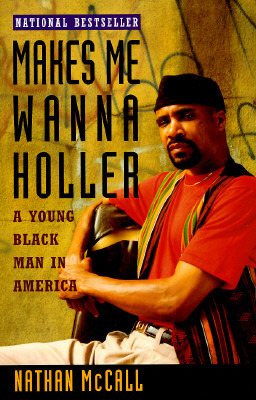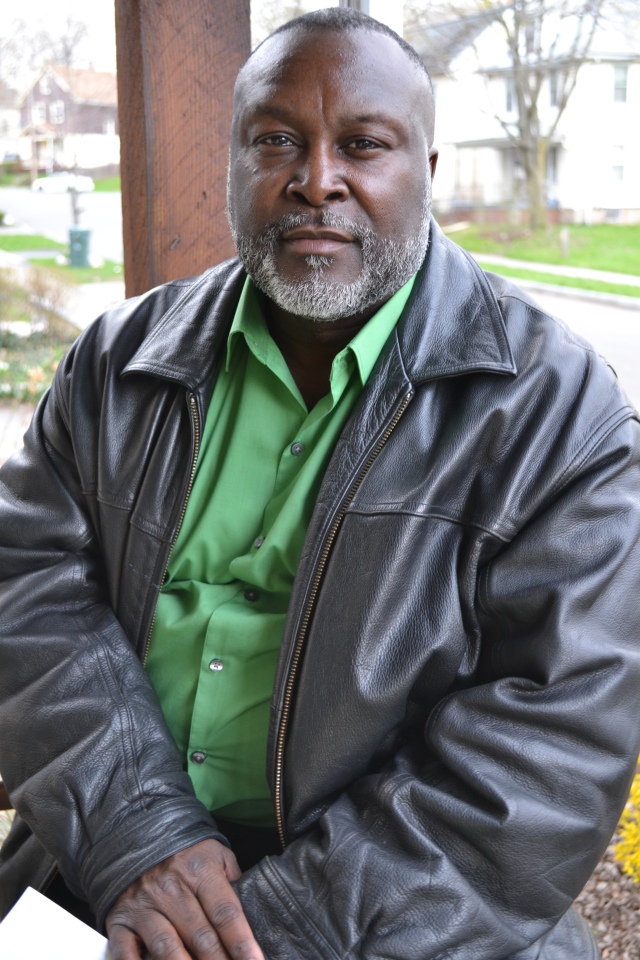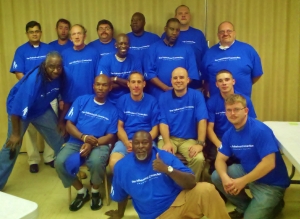 This article is by my sister, Jennifer R. Owens – she writes on her blog at Life of JennRene and she does a really good job writing, is a writing coach, and a social worker in the field who has worked with lots of families. Sometimes I share with her I wish she were here, in Rochester, N.Y so we could work together. One of the best things I have witnessed in my lifetime and in my family is my brother and my nephew, Reg & Reg – working together in the field of counseling and advice for men and fathers. I had a chance last year when I visited Rochester, to sit in one of their fatherhood groups. I had never witnessed them working together, and I tell you … it was amazing to see and hear their input, firsthand. It’s funny, I have to tell you, I never thought my nephew (Lil Reg – we call ’em) – would go into the field of social work or counseling of men. I just thought “football” would forever be his life! Reg LOVES football more than anything else, so when he spoke about goals and pursuing them in life, I never heard him even slightly talk about doing this kind of work. One of the things I have been to my brother Reg, and I am sure he won’t mind I say this, is a “sister coach” of sorts, I have always mentioned to him, when things were not so positive in the past with his kids – to “keep reaching out”… and I and delighted to say, Reg has done just that. As he works on his business with The Fatherhood Connection, I see the program growing and helping men find broken pieces of their lives and find understanding. I love most of all, they find ANSWERS.
This article is by my sister, Jennifer R. Owens – she writes on her blog at Life of JennRene and she does a really good job writing, is a writing coach, and a social worker in the field who has worked with lots of families. Sometimes I share with her I wish she were here, in Rochester, N.Y so we could work together. One of the best things I have witnessed in my lifetime and in my family is my brother and my nephew, Reg & Reg – working together in the field of counseling and advice for men and fathers. I had a chance last year when I visited Rochester, to sit in one of their fatherhood groups. I had never witnessed them working together, and I tell you … it was amazing to see and hear their input, firsthand. It’s funny, I have to tell you, I never thought my nephew (Lil Reg – we call ’em) – would go into the field of social work or counseling of men. I just thought “football” would forever be his life! Reg LOVES football more than anything else, so when he spoke about goals and pursuing them in life, I never heard him even slightly talk about doing this kind of work. One of the things I have been to my brother Reg, and I am sure he won’t mind I say this, is a “sister coach” of sorts, I have always mentioned to him, when things were not so positive in the past with his kids – to “keep reaching out”… and I and delighted to say, Reg has done just that. As he works on his business with The Fatherhood Connection, I see the program growing and helping men find broken pieces of their lives and find understanding. I love most of all, they find ANSWERS.
I am the creative mind behind Reggie’s blog and help him with social media, and last year when I was home in Rochester, I spent time in a group for the men. I was in the audience on the floor, videotaping and… my brother putting me on the spot. He asked the impact that having a father who was an alcoholic in my life growing up had on me. I began to just share with the men in the group my thoughts and insight about this, and I share also on the blog.(http://www.jennrene.com/2011/06/power-of-making-amends/)
As I spoke, I shared with the men and I saw something I never saw before in a large group setting. I saw men in front of me, with sincere looks of concern, and I heard stories of where the neglect we experienced by my father early on came from. I was able to see fathers holding on, being strong for daughters and telling stories of how they reach out to their daughters, and will do even more, because of what they heard me tell about my relationship with my father, when young. I heard fathers say they will continue to “cover” their daughters, when there are no men in their lives, and I heard stories of how fathers love their daughters and want more, and will do more because they desire her to be happy in her future. I was also able to see on a larger scale the effects father hunger has on women. I had never really considered this in-depth while at the same time mentoring fathers of this pain and seeing the expressions on their faces in having them know just how important it really is, helped me to desire to DO MORE for women in terms of bringing families together. In this group, in particular, I found a greater passion for the women I serve in Tulsa, Oklahoma, and I shared stories of these women who have not had fathers in their lives — where they end up. Hopefully, my words helped someone in that group, and hopefully, my cause will be greater, because of my pain and my hurt when young. Hopefully, fathers will change their lives because of those words shared in the room, that day. When I observe my nephew’s future and I observe also the reconciliation between father and son, between my brother and his son, I become emotional; yet grateful. I also I become confident and hopeful about my nephew’s future. Reggie ( Jr.) will have a more positive relationship with his children and his wife, because of what he has witnessed in terms of my family’s healing, and for that, I am thankful. This didn’t come about easy, it has taken a long time, and a lot of prayer, and a lot of communication and re-building — even when family members didn’t want to, and were hurt because of it. Yet when I look at the next generation, they will have HOPE, because we are taking care of what we needed to , first.
So …build on…. fathers, build on… Selah.
-By JennRene Owens – Blogger at Life Of JennRene JennRene ( a.k.a Jennifer Owens) is from Rochester, NY and currently resides in Tulsa Oklahoma. Jennifer has been in the social work field for over twenty three years and loves to help change minds and hearts for whole -hearted living. Jennifer is an author and published “Red Sea Situations: Finding Courage in The Deep Seas of Life,” last summer. Her blog Red Sea Courage can be found at http://www.redseacourage.wordpress.com and she has a compassion to serve the underserved, the oppressed and those who long to find their voices. JennRene also has a gift for encouraging people to write books and is a life coach. Once again, it’s all about finding voice.





